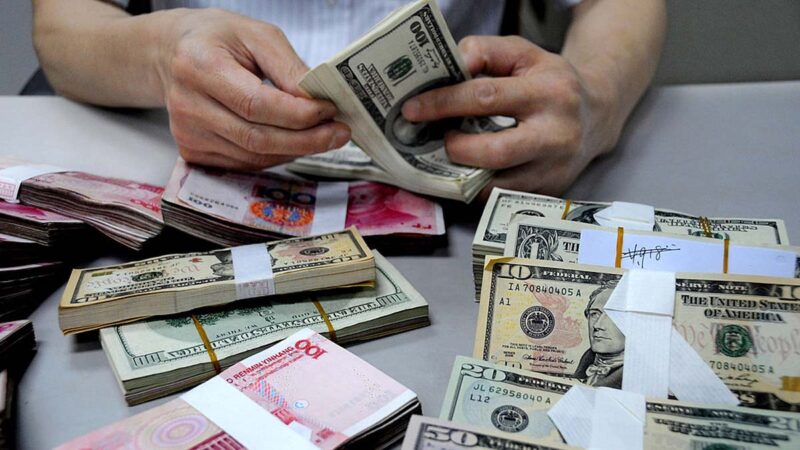[Beijing time, October 1, 2022]Reuters quoted four people familiar with the matter as saying that in order to increase efforts to prevent the devaluation of the yuan, the People’s Bank of China recently asked the overseas branches of major state-owned banks in Hong Kong, New York and London to prepare Selling dollars in offshore markets would be “pretty large”.
The renminbi has fallen more than 11 percent against the dollar so far this year, the report said, expected to be the biggest drop in a single year since China unified the yuan’s official and market exchange rates in 1994.
One of the sources said the scale of the dollar sell-off to stop the yuan’s continued depreciation would be “pretty substantial.” As for this exchange rate intervention program, it mainly involves “the use of US dollar reserves loaned by the state”. The measure comes after China’s official measures to set a floor for the devaluation of the renminbi.
After the report was disclosed on Sept. 29, the yuan’s offshore spot exchange rate rebounded by about 200 basis points. By the last transaction of the day at 5:35 p.m. Taipei time, the offshore spot exchange rate of RMB had risen to 7.1849 yuan per US dollar.
But the actual attitude of these large state-owned banks in China seems to be different from the official order. The big state-owned banks are scrambling to buy more dollars in the offshore market, one of the sources said.
The People’s Bank of China did not respond or comment to Reuters on the news of the aggressive dollar sell-off.
While the renminbi has gradually depreciated, in line with the US Federal Reserve’s (Fed) push to push major currencies lower against the dollar, the renminbi’s fall to a weak 7 to 1 dollar has sparked concerns about Chinese sentiment and potential capital outflows. worry.
While the offshore renminbi moves in tandem with onshore institutions, its trading volume accounts for about 70% of the renminbi’s global foreign exchange trading volume, dwarfed by those in mainland China.
Chinese officials have intervened in the offshore yuan market in the past to steer the yuan’s exchange rate. The source pointed out that the total amount of the dollar sell-off has not yet been determined because the direction of the yuan depends largely on the direction of the dollar and the Fed’s monetary tightening trajectory.
According to reports, the renminbi depreciated by 2% in one go in 2015, disrupting global financial markets; to support the renminbi exchange rate, China consumed $1 trillion of official foreign exchange reserves at the time.
The People’s Bank of China also introduced policy measures in September aimed at increasing the cost of shorting the yuan, the report said. At the same time, in order to guide and support the weak RMB exchange rate, the government also instructed local banks to restore the RMB exchange rate fixed central parity mechanism that was abandoned two years ago.
(Original title: Reuters: Preventing the continued depreciation of the renminbi, China orders banks to dump dollars overseas)
(Transfer from Taiwan Central News Agency/Responsible Editor: He Yating)
URL of this article: https://www.ntdtv.com/gb/2022/10/01/a103541447.html
